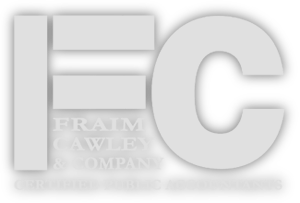Years ago when I was first starting my business I picked up a client who’d had a series of terrible accountants. How terrible? The first accountant had made some material errors that cost him over $100,000 in tax penalties. The accountant after that seemed better…at least until I looked into prior tax returns. I discovered some errors in that accountant’s filings and was able to recover the client over $30,000 by correcting and amending those returns.
The client was ecstatic and I felt pretty darn proud of myself. And, one would assume, I had a client for life.
Fast forward to a year ago (a few years after the $30,000 savings), and I received a notice from the client that he would no longer be using my services and had contracted another CPA. What went wrong? Had I made a huge mistake? Had I not saved him money on his tax returns? Had there been some vital oversight in my work?
No, there was absolutely no issue with the work itself. Instead, the client complained that I had not given them enough customer referrals during our time together. There’s a clear fallacy in that reasoning – since my job (well-done I might add) is to keep clients out of tax trouble, run their business profitably, and help them to end up with as low a tax bill as is legitimately possible. I mean, I love to refer business to other professionals and do so whenever I can, but that was not my primary function as his CPA.
OK, that rant aside, that’s not what why I bring it up the incident for today’s discussion. Instead I wanted to talk about the mistake that I made in that relationship.
Because I was so new in business, I made business strategy error that is common among entrepreneurs starting out: I failed to charge an appropriate amount for the value that my services provide. My goals in not charging him what I should have were valid one in and of themselves. I wanted to:
- Please the client and build a lasting relationship with him
- Establish up a good reputation
- Hopefully get referrals from the client
- Provide a return that exceeded the price I was charging
There is nothing wrong with any of those objectives. But because of my overzealousness on the 4th point, I grossly (and I mean grossly) undercharged – despite the fact that I had provided tremendous (and by virtue of there being a dollar figure that I saved him, easily demonstrable) value. I had the mistaken view that the savings I had provided my client in the first year would build a relationship that would last forever. I thought the lifetime worth of business that I would enjoy from that client would make up for the very large initial discount.
But just a few years later the quality of service provided and the low price charged were both forgotten. And to be clear, I don’t say this as sour grapes. I bring it up because it serves as a valuable lesson. “What have you done for me lately?” is a well-known phrase for a reason. On the surface we all know the flaws with that line of reasoning, but it is basic human nature to think that way to an extent. We all do it – and sadly, so do our customers and clients.
Which is why every entrepreneur needs to charge appropriately for their services.
Every business should provide value to their customers. Every business should give a fair price. Every business should provide equal or greater value than price that was charged. But don’t undersell yourself.
My prices are quite reasonable, but the longer I’ve been in business the more and more I realize that people aren’t buying based on price. They’re buying based on the value you provide and the benefits they are receiving. And if you are providing that value, you need to charge appropriately.
If nothing else, you never know when people will forget what you’ve done for them. And that’s their right. They don’t owe you anything aside from what you charge them. So make sure you’re charging enough.
Stay tuned for my next article where we’ll talk about how the simple act of not charging enough can damage the actual number of individual customers you attract, not just the total amount of sales.
Any accounting, business, or tax advice contained in this communication, including attachments and enclosures, is not intended as a thorough, in-depth analysis of specific issues, nor a substitute for a formal opinion, nor is it sufficient to avoid tax-related penalties.




